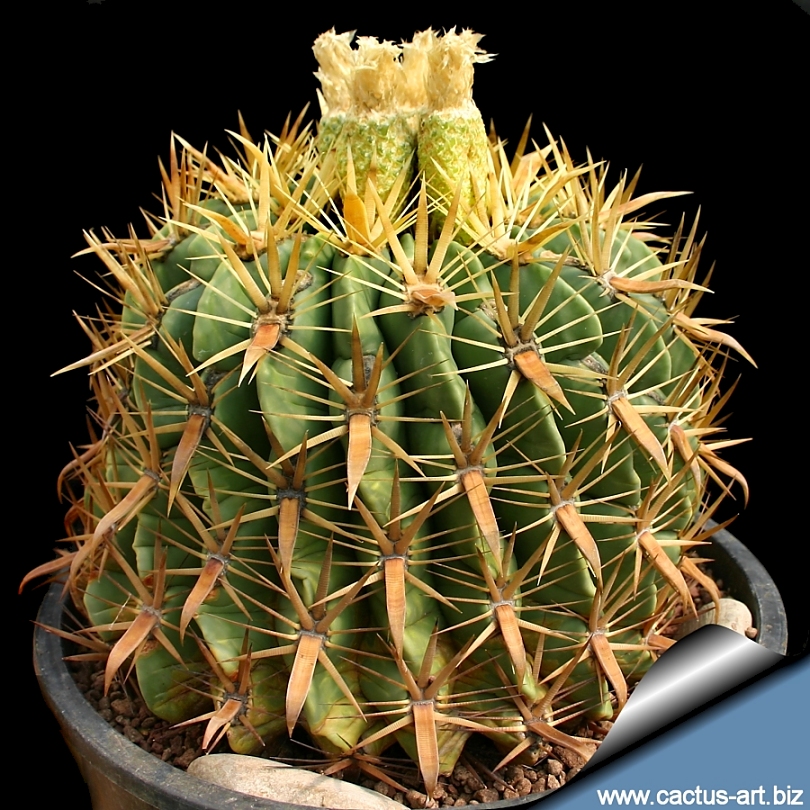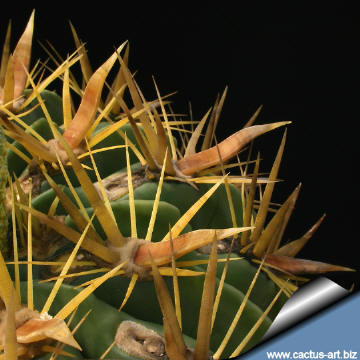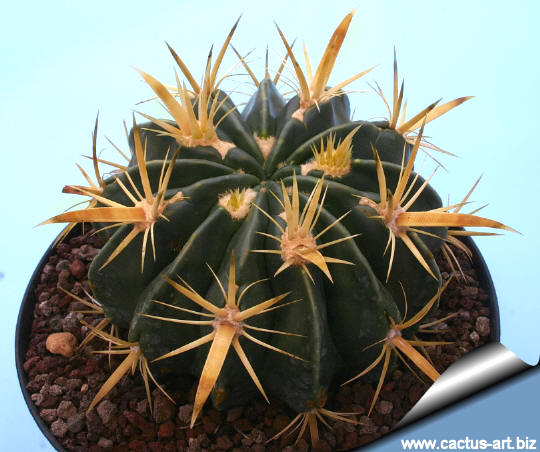|
|
|

F. latispinus var. flavispinus (Yellow spined form)
The plants are identical in shape to the standard species but the
spines are all yellow.
|

|
Description:
F. latispinus is a modest-sized ball-shaped or flat-topped barrel
cactus, which normally remains a solitary plant, without dividing or
producing offsets.
Stem: Flattened to spherical (in cultivation), diameter
25 to 45 cm,
35 cm tall, most often wider than tall.
Ribs: 13 to 23 ribs,
sharp.
Areoles: Large, grey to blackish.
Central spines: 4 large of which
the
lowest one is
conspicuously
wider,
thick and flat, apically bent downward and hooked up to 4cm long.
and lie flat against the body.
This prominent spine is
yellow coloured . The other central spines are still stout, but much
narrower and not curved.
Radial spines: 6-12 up to 2,5cm long, spreading out , smaller,
translucent yellow straight that have almost no width at all.
Flowers: Beautiful “glassy” straw-yellow (or pink-purple), up to
6cm long and 3cm broad.
Blooming time: Late autumn to early winter, usually in October |
|
Photo of conspecific taxa, varieties, forms and
cultivars of F. latispinus.
|
|


|
|
Advertising
|
|
|
|
Family:
Cactaceae
(Cactus
Family)
Scientific Name:
Ferocactus latispinus v. flavispinus
(Haage) Backeberg & F. M. Knuth.
In: Kaktus-ABC 352., 1935
Common Names: Devil's Tongue Barrel, Crow's Claw Cactus,
Candy cactus
Origin: This species has an extensive distribution in the
dryer areas of central and southern Mexico (Coahuila, Nuevo Leon, and
south)
Conservation status: Listed in
CITES appendix 2.
|
Synonyms:
- Ferocactus latispinus v. flavispinus
(Haage) Backeberg & F. M. Knuth, Kaktus-ABC
352., 1935
|
|

|
|
|
|

Cultivation: Slow growing
to start but does well under cultivation.
Use very draining soil, water during the aestival growth
cycle (this plant need plenty of water) But needs to be avoided
wetting the bodies of these plants while they are in sunlight. A wet
cactus in the sun light can cause sun burning which can lead to scares
or even fungal infections and death.
Needs full sun. Keep dry at 10°C in winter,
but can tolerate sporadic light frost.
Reproduction:
Seeds are the only way of
reproducing.
Attention: The spines that hook around can graph you if you get
too close.
|
|